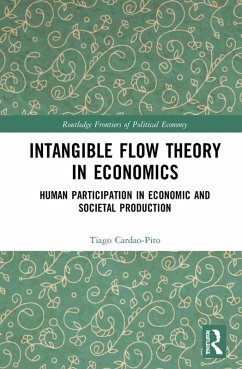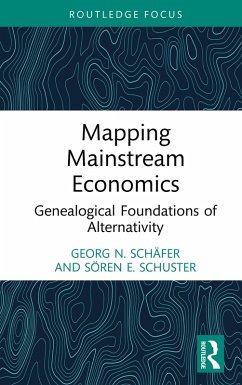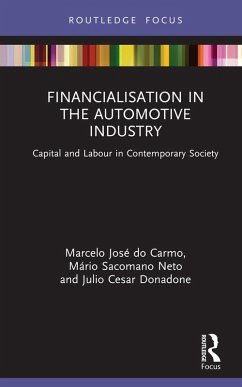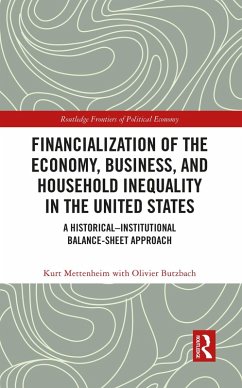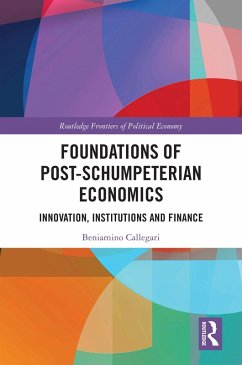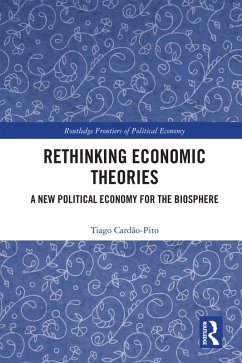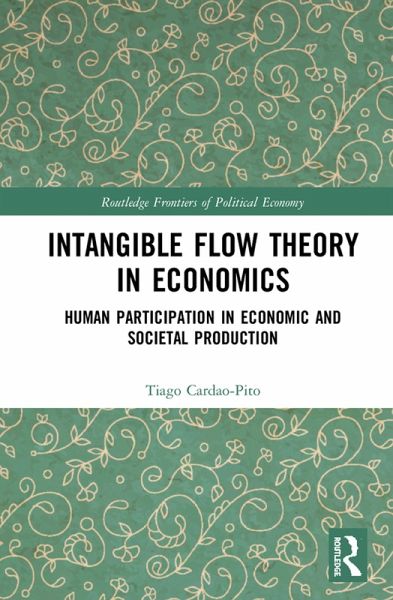
Intangible Flow Theory in Economics (eBook, PDF)
Human Participation in Economic and Societal Production
Versandkostenfrei!
Sofort per Download lieferbar
49,95 €
inkl. MwSt.
Weitere Ausgaben:

PAYBACK Punkte
25 °P sammeln!
The dominant economic explanations of the 20th century are not comprehensive enough to describe the complexity of economy and society and their reliance on the biosphere. Intangible Flow Theory in Economics: Human Participation in Economic and Societal Production outlines a new theory that challenges both economics and the relativism conveyed in social constructivism, poststructuralism and postmodernism. To mainstream economics and Marxism, monetary flows transform us humans into commodities. To this new theory, flows of economic elements as physical goods or money are consummated by intangibl...
The dominant economic explanations of the 20th century are not comprehensive enough to describe the complexity of economy and society and their reliance on the biosphere. Intangible Flow Theory in Economics: Human Participation in Economic and Societal Production outlines a new theory that challenges both economics and the relativism conveyed in social constructivism, poststructuralism and postmodernism. To mainstream economics and Marxism, monetary flows transform us humans into commodities. To this new theory, flows of economic elements as physical goods or money are consummated by intangible flows that cannot yet be precisely appraised at an actual or approximate value, for instance, workflows, service flows, information flows or communicational flows. The theory suggests a systematic alternative to refute the human commodity framework and interrelated conjectures (e.g. human capital, human resources, human assets). Furthermore, it exhibits that economic and societal production is fully integrated on the biosphere. Conversely, contemporary relativism argues for the end of theory development, suspension of evidence and entrenchment of knowledge validity among local systems (named as paradigms, epistemes, research programs, truth regimes or other terms). Thus, relativism tacitly supports dominant theories as the human commodity framework because it preventively sabotages the creation of new theoretical explanations. Disputing relativist theses, intangible flow theory demonstrates that innovative theoretical explanations remain possible. This book is of significant interest to students and scholars of political economy, economic sociology, organization, economics and social theory.
Dieser Download kann aus rechtlichen Gründen nur mit Rechnungsadresse in A, B, BG, CY, CZ, D, DK, EW, E, FIN, F, GR, HR, H, IRL, I, LT, L, LR, M, NL, PL, P, R, S, SLO, SK ausgeliefert werden.




